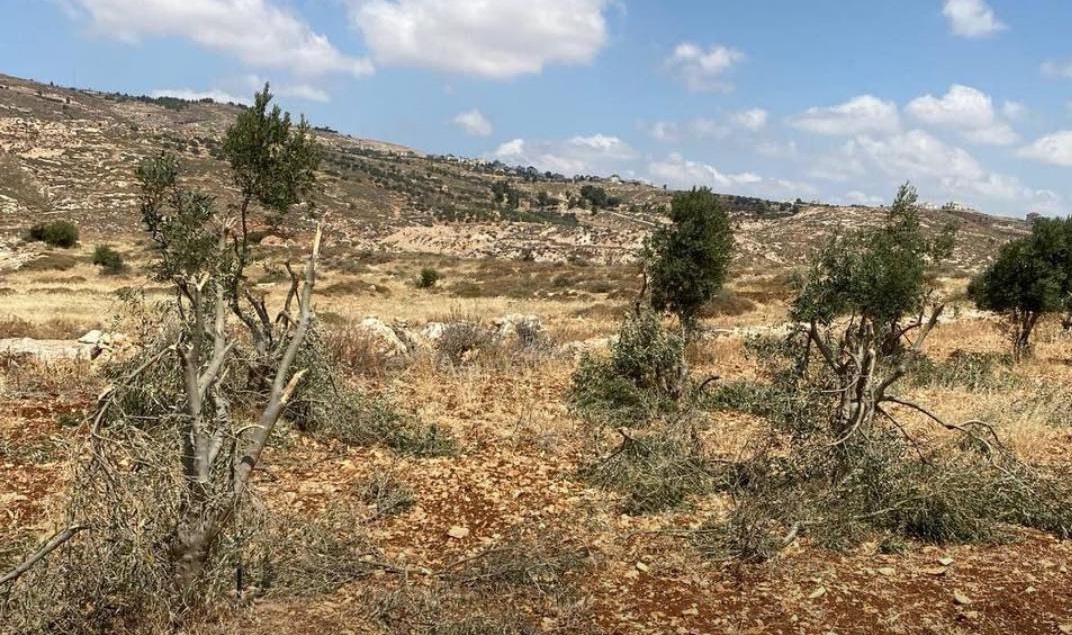Important News
- Amnesty International urges global rejection of Israel’s weaponized aid plan in Gaza
-

- Israeli court extends detention of wife of Palestinian prisoner Walid Daqqa who died in Israeli prisons
-

- Israeli forces assault Palestinian civilian at Barta’a checkpoint north of Jenin
-

- UN Rights Chief says attacks on starving civilians in Gaza are "unconscionable"
-

- Cabinet urges immediate international action to end Israel’s use of starvation as a weapon in Gaza
-

- Colonists destroy dozens of olive trees near Ramallah
-

- Health official: Over 3,000 hypertension and diabetes patients in Gaza deprived of treatment for more than three months
-

- At least eight civilians killed in Israeli airstrikes on displacement tents in central Gaza
-

- Israeli forces raze large tract of land east of Ramallah
-

- Several civilians killed and others injured in Israeli airstrikes on different areas in Gaza
-

- "International support needed to establish Palestinian state," says French FM
-

- Israeli forces raid archaeological sites in West Bank town
-

- At least 10 killed, others injured in Israeli strikes on different areas across Gaza
-

- Israeli forces assault farmers, seize tractors in Hebron’s Beit Ummar
-

Hijazi: Palestinian People Suffer Lack of Energy Resources
NEW YORK, March 2, 2007 (WAFA) - Ammar Hijazi, First Secretary of the Permanent Observer Mission of Palestine said peoples living under foreign occupation face unique challenges and have specific needs when it comes to energy and energy sources, namely the issue of choice and control.
In a statement before the Intergovernmental Preparatory Meeting of the Commission on Sustainable Development, Mr. Hijazi said "living under a foreign military occupation, the occupied People are stripped from their rights to have a choice over energy supply or control over the resources that could generate energy."
He added that the Palestinian People face this unique and un-enviable reality, where they must buy energy at considerably higher prices because they have no control over import and export, much less over points of entry into the Occupied Palestinian Territory.
"They also face tremendous hardships in ensuring the unobstructed flow of energy sources to the Occupied Palestinian Territory."
Hijazi revealed that Palestinians have attempted to reach some level of self-reliance in the electricity field but their sincere efforts were harshly shot down. "A modest power plant in the Gaza Strip was constructed, which could provide only 43 percent of Gazans with their power needs while the rest of the electricity supply had to be bought from Israel." He said.
But, he adds, this power plant was targeted by the Israeli occupation's full military might, plunging 700,000 Palestinians in darkness for months.
The strike, which has been rightly condemned as a war crime affected every aspect of life in the Gaza Strip on the short and long terms. Namely, it affected water supply, sewage treatment, garbage collection, and hospital services among many other things.
"In the next 15 years, Palestinians' need for electricity will quadruple. Additionally, needs for Motor fuel and liquefied petroleum gas (LPG), all brought from or through Israel, will rise," he said. "Yet, Palestinians are sitting on 1.4 trillion cubic feet of gas in the Gaza Strip, which they have not been able to use or take advantage of because of the Israeli occupation, which remains in absolute control of such vital and possibly life-changing decisions for the Palestinian People. This brings us back to the issue of control and choice, both of which the Palestinian People do not have under Israel's occupation."
He added that, another stark example of this lack of control is the effect of Israel's continued construction of its illegal wall in the West Bank, including East Jerusalem.
"Because of this Wall, which Israel continues to construct in defiance of General Assembly resolution ES-10/15 and the ICJ's Advisory Opinion of 9 July 2994, Palestinians must pay more to construct taller power towers that are farther away and taller than the wall, , which is nine meters high in some places. This will inevitably have a direct effect on the price of electricity supply to Palestinians in the West bank, including East Jerusalem."
Hijazi said these actions of collective punishment, undertaken by Israel, the Occupying Power, against the Palestinian People are in grave violation of the Geneva conventions and in contravention of international human rights law.
A.D (23:00P) (21:00GMT)










